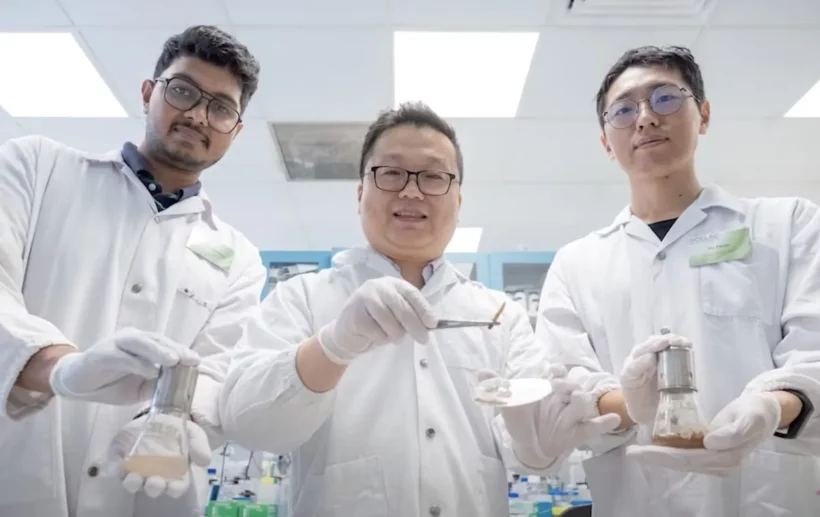News of plastic-eating enzymes and insects has been making headlines in recent years. Take, for example, fungi that digests plastic in coastal salt marshes, or the greater wax moth caterpillar that can live on polyethylene in its larval stage. However, to utilize these plastic-eating organisms, scientists would need to be able to breed them in large numbers.
Scientists from Nanyang Technological University, Singapore (NTU Singapore) have come up with a potential solution to this problem by developing an artificial worm gut that can break down plastics without requiring extensive worm breeding. The scientists published their results in the journal Environment International.
A separate 2020 study found that Zophobas atratus worms have gut bacteria that can break down common plastics, but the scientists from NTU Singapore noted that this method of breaking down plastics isn’t viable for the scale of plastics, because the worms eat and break down the plastic slowly and require a lot of maintenance to breed them in high numbers.
“A single worm can only consume about a couple of milligrams of plastic in its lifetime, so imagine the number of worms that would be needed if we were to rely on them to process our plastic waste,” Cao Bin, an associate professor of the university’s School of Civil and Environmental Engineering, said in a statement. “Our method eliminates this need by removing the worm from the equation. We focus on boosting the useful microbes in the worm gut and building an artificial ‘worm gut’ that can efficiently break down plastics.”
So the team from NTU Singapore found a way to recreate the plastic-digesting worm gut by developing microbial communities in flasks. The researchers set up three different groups of the worms and fed them diets consisting of different plastics: high-density polyethylene (HDPE), polypropylene (PP) and polystyrene (PS). A control group of worms was fed oatmeal.
The worms were fed their specified diets for 30 days, after which the scientists extracted the gut microbiomes and isolated them in flasks with plastics and synthetic nutrients. By doing this, the scientists noted they created a sort of “artificial worm gut” that was left at room temperature and allowed to grow over a six-week time period.
The microbiome communities developed from worms that were fed a plastic diet had a higher amount of bacteria that could break down plastics after the six weeks, the study found.
“Our study represents the first reported successful attempt to develop plastic-associated bacterial communities from gut microbiomes of plastic-fed worms,” Liu Yinan, first author of the study and a research fellow at NTU, Singapore’s School of Civil and Environmental Engineering, said in a statement. “Through exposing the gut microbiomes to specific conditions, we were able to boost the abundance of plastic-degrading bacteria present in our artificial ‘worm gut,’ suggesting that our method is stable and replicable at scale.”
The researchers plan to further study the microbial communities’ abilities to break down plastic. Eventually, they hope this information will help further develop more efficient and practical ways to break down plastic waste.






